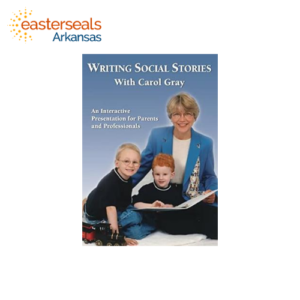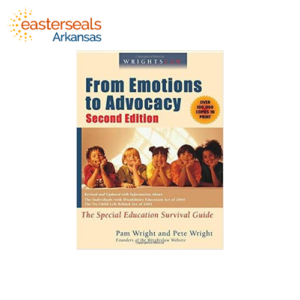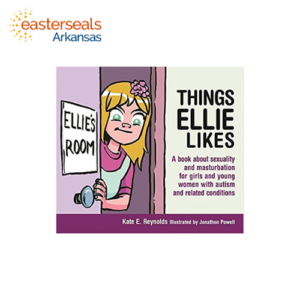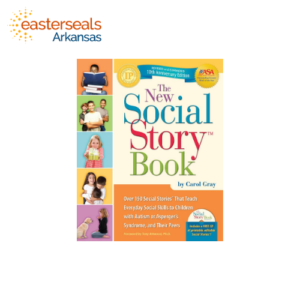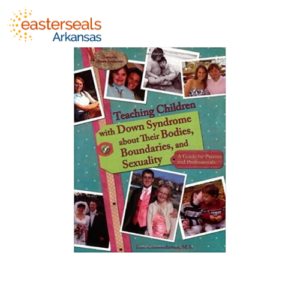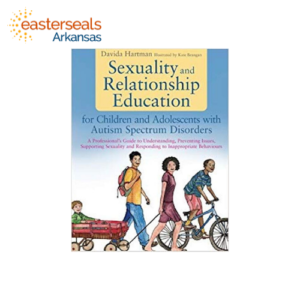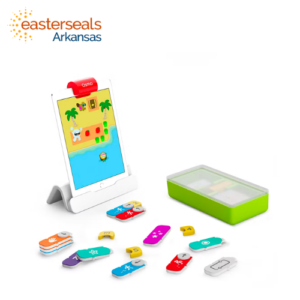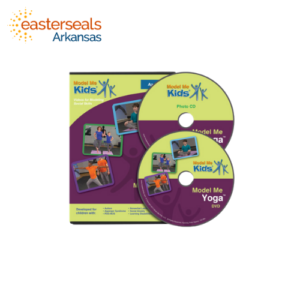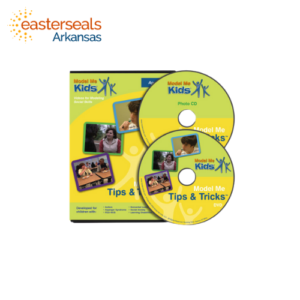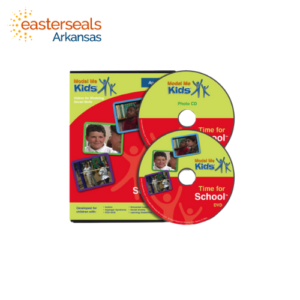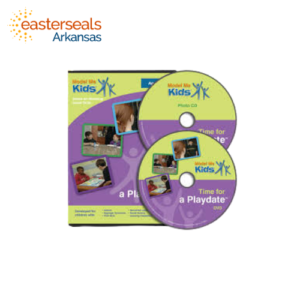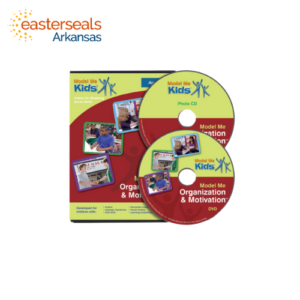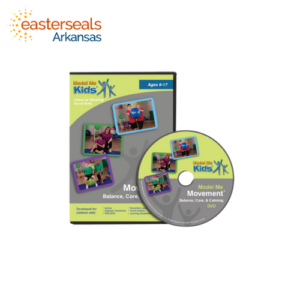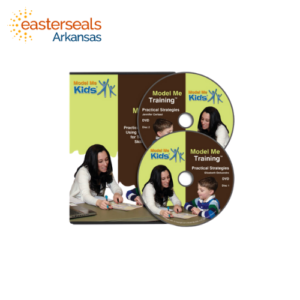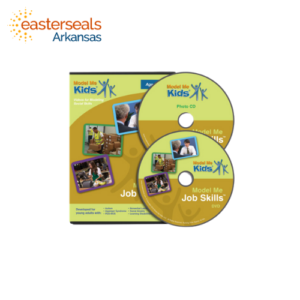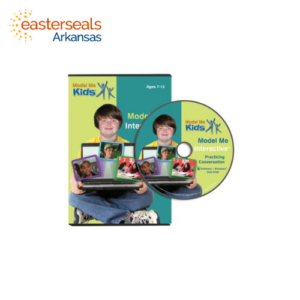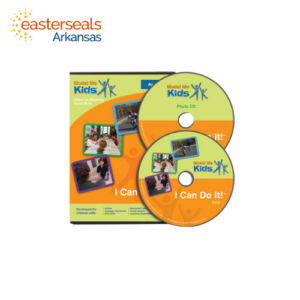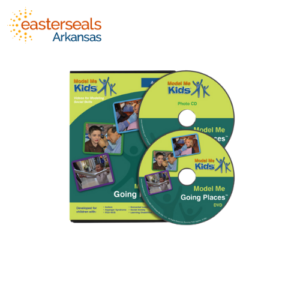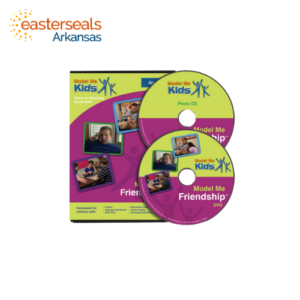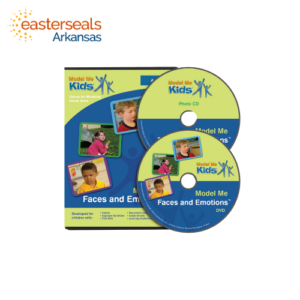-
This is an actual "Carol Gray Social Stories Workshop." In this three-hour presentation, Carol explains the genesis of her concept of social stories and leads the audience through exercises so, by the end of the video, you can easily write your own social stories. The accompanying handout booklet offers an outline of the presentation and statements and illustrations from Carol Gray's The New Social Story Book Illustrated Edition. The booklet is helpful while watching the video.
-
Wrightslaw: From Emotions to Advocacy, second edition will teach you how to plan, prepare, organize and get quality special education services. In this comprehensive, easy-to-read book, you will learn about your child's disability and educational needs, how to create a simple method for organizing your child's file and devising a master plan for your child's special education.You will understand parent-school conflict, how to create paper trails and effective letter writing. This book includes dozens of worksheets, forms and sample letters that you can tailor to your needs. Whether you are new to special education or an experienced advocate this book will provide a clear roadmap to effective advocacy for your child. You will use this book again and again.
-
This accessible and positive resource helps parents and carers teach girls and young women with autism or related conditions about masturbation. It covers when and where it is appropriate and helps to establish boundaries surrounding privacy more generally. With simple but explicit illustrations, this book provides the perfect platform to talk about sexuality with girls and young women with autism or related conditions.
-
The Adult Facilitator and participants need to be familiar with the core concepts and vocabulary taught in The Zones of Regulation curriculum to use this game. Navigating The Zones is not designed to be a stand-alone teaching tool. The game is smaller, lighter, and more durable! The board is made of a strong mouse-like material to withstand heavy use.
-
Since the early 90s, Carol Gray's world-famous Social Stories have helped thousands of children with autism spectrum disorders. This 10th Anniversary edition of her best-selling book offers the ready-to-use stories that parents and educators have depended on for years, but now features over 25 additional Social Stories, groundbreaking new strategies for creating custom stories, and a modern design complete with full-color photos. Developed through years of experience, these strategically written stories explain social situations in a way children with autism understand, while teaching the social skills children need to be successful at home, at school, and in the community.
-
Core concepts include earth, biology, waters, and chemistry Two years of classroom research demonstrates high effectiveness for teaching students with an intellectual disability or autism A multiyear curriculum aligned with Next Generation Science Standards and the National Science Education Standards Provides an extensive image library that can be used to create communication overlays and additional assignments Teaching structure can be used for additional content from other science curricula like our Science Step by Step or Exploring Science Includes a hands-on experiment with each lesson
-
Parents of children with Down syndrome and other intellectual disabilities are accustomed to paying close attention to their child's physical, cognitive, and emotional development. This proactive approach should also include their child's sexual development, which for many parents may not seem as obvious or urgent, especially to those with young children. Drawing on her unique background as both a sexual educator and mother of a child with Down syndrome, the author blends factual information and practical ideas for teaching children with Down syndrome about their bodies, puberty, and sexuality. This book gives parents the confidence to speak comfortably about these sometimes difficult subjects.
-
Looking for an engaging way to teach social awareness and self-regulation? Superflex, to the rescue! Kids around the world are having fun learning strategies and practicing new skills to boost their “Superflex powers,” so they don’t realize they’re improving their self-regulation and flexible-thinking abilities!
-
Children and adolescents with Autism Spectrum Disorders (ASD) require specialized teaching strategies when learning about puberty, sexuality and relationships. This professional resource offers practical teaching advice geared towards the needs of young people on the autism spectrum. Beginning with information on good practice, policy, teaching methods and recent research, the book then divides into key sex education topics that assist professionals in developing their own individualized and developmentally appropriate curricula. Covering issues of gender, public and private, puberty, hygiene, emotions, sex and more, each topic provides an overview of the difficulties that children with autism might experience, discussion and activity ideas and photocopiable resources including instructional stories, checklists and illustrations. The final section demonstrates how to respond to ongoing patterns of inappropriate behaviour and put together a behaviour plan. Aiming to explain and support the child's developing sexuality while also addressing crucial issues of safety, this book is a much-needed teaching manual for all professionals working with children and young adults with autism including educators in mainstream and special education, psychologists, therapists and social workers.
-
Instructors who use Differential Reinforcement Systems will find these CDs essential. Pop a CD into your CD player, select the track according to the interval you need, and repeat the track for a continuous reminder to catch your students “being good!” CD #1 has 1, 2, 3, and 5-minute intervals. CD #2 has 7 and 10-minute intervals. CD #3 has 15-minute intervals. Each track plays a distinct tone so that you can play more than one CD at a time for students needing different intervals and recognize which interval is sounding. Each tone is activated on a randomized, variable schedule (the three-minute tone sounds on average every three minutes). These tones also are a great tool for instructors who are teaching children to monitor their own behavior. (set of 3 CDs)
-
Transform your tablet into a hands-on coding adventure. Designed for ages 5–10, Coding Starter Kit builds coding skills in progression with 3 hands-on learning games. Watch your child learn to code as they connect colorful blocks of code in the physical world to chart the adventure on their screen.
-
The Model Me Yoga™ video leads children through yoga sequences for breath, movement, and self-awareness. No yoga experience necessary! Designed for children with Autism but appropriate for all kids! Each sequence runs approximately 10-15 minutes, so it can be used as a short break or strung together with other segments for a longer yoga class. The sequences are first presented with visual cues and background music to explain the poses. In the second version, the same sequences are offered without the visual cues or music background as an option. Each pose is modeled by a child and explained by the yoga teacher. The video includes partner yoga and chair yoga sequences. Model Me Kids, LLC is a Yoga Alliance Registered Children's Yoga School.Recommended for ages 7-15
-
The Model Me Tips & Tricks™ video features upper elementary, middle, and high school-aged children demonstrating social skills at school and in the community. Each scene lasts between 30 seconds and 3 minutes, depending on the chapter. The visual is combined with narration and graphics that help explain the particular rule. At the end of each chapter is a storyboard summarizing the rules taught.Hosted by children from the video, who narrate each scene. Each social skill is demonstrated in more than one situation and across environments. This is useful to children with Autism because it helps with generalization of the skill taught. Recommended for ages 9-17
-
The Time for School™ video presents social skills in the context of school. It features elementary school-aged children demonstrating appropriate social skills in the classroom, library, on the playground, and in the hallway. Each scene lasts between 30 seconds and 3 minutes, depending on the chapter. At the end of each chapter is a storyboard summarizing the rules taught.The video is hosted by a young boy, who narrates each scene. The visual is combined with narration and graphics that help explain the particular rule. Each social skill is demonstrated in more than one situation and across environments. This is useful to children with Autism because it helps with generalization of the skill taught. Recommended for ages 5-12
-
The Time for a Playdate™ video presents social skills in the context of several playdates. It features elementary school-aged children demonstrating appropriate social skills on a playdate. Each scene lasts between 30 seconds and 3 minutes, depending on the chapter. At the end of each chapter is a storyboard summarizing the rules taught. The video is hosted by the young children in the video, who narrate each scene. The visual is combined with narration and graphics that help explain the particular rule. Each social skill is demonstrated in more than one situation and across environments. This is useful to children with Autism because it helps with generalization of the skill taught.Recommended for ages 5-12
-
The Model Me Organization & Motivation™ video presents skills related to organization and self-motivation. It features teen-aged children demonstrating how to get organized and stay motivated. Each scene lasts between 30 seconds and 3 minutes, depending on the chapter. At the end of each chapter is a storyboard summarizing the rules taught.The video is hosted by the children in the video, who narrate each scene. The visual is combined with narration and graphics that help explain the particular rule. Each skill is demonstrated in more than one situation and across environments. This is useful to children with Autism because it helps with generalization of the skill taught. Graphics and music are used to make the video appealing to children with Autism.Recommended for ages 9-17
-
Model Me Movement™: Balance, Core, & Calming is a video of short, easy-to-follow movement activities developed by Occupational Therapist Dr. Fabiane Curro. The video is designed to improve balance, increase core strength, and promote self-calming. The DVD contains six 8-11 minute movement segments each modeled by a child and guided by an adult. The activities are designed to target skills that help with coordination, body awareness, self-regulation, and promote an overall feeling of physical well-being.Recommended for ages 9-17
-
This DVD examines video modeling as an evidence-based method of improving social skills in children with autism spectrum disorder (ASD). Children with ASD often have social skills deficits that interfere with success. Video modeling has been found to be an efficient and effective method of teaching social skills to children with ASD. We address how to implement a video modeling program, pairing video modeling with other social skills training approaches, and strategies for generalization of skills.
-
The Model Me Job Skills™ video models social skills helpful for gaining and maintaining employment. The video is hosted by the young adults in the video, who narrate each scene. The visual is combined with narration and graphics that help explain the particular rule. Each social skill is demonstrated in more than one situation and across environments. This is useful to individuals with Autism because it helps with generalization of the skill taught. Recommended for ages 15-21
-
Model Me Interactive™: Practicing Conversation For Ages 7-13 | Developed for children with Autism, Asperger Syndrome, and Developmental Delays. For a laptop with webcam. Model Me Interactive™: Practicing Conversation combines video modeling teaching tools with the interactive capability of software. First, video models a conversation between children. Then, the student practices the conversation using a webcam. The practice conversation is recorded and a feedback area allows teachers to comment on and grade a student's recordings. Ideal for professionals including teachers, therapists, and speech language pathologists.
-
The The I Can Do It!™ video presents social skills in the context of challenging circumstances. It features elementary school-aged children demonstrating appropriate behavior in a variety of difficult situations. Each scene lasts between 30 seconds and 3 minutes, depending on the chapter. At the end of each chapter is a storyboard summarizing the rules taught.The video is hosted by the young children in the video, who narrate each scene. The visual is combined with narration and graphics that help explain the particular rule. Each social skill is demonstrated in more than one situation and across environments. This is useful to children with Autism because it helps with generalization of the skill taught. Recommended for ages 5-12
-
The Model Me Going Places™ video features children, ages 2-8, involved in activities in the community. It is designed to familiarize children with locations that may be challenging, and to help teach appropriate behavior in these locations through peer modeling. Each scene lasts between 2-4 minutes, depending on the chapter. At the end of each chapter is a storyboard summarizing the locations shown. Recommended for ages 2-8
-
The Model Me Friendship™ video presents social skills needed to develop and maintain friendship. It features teen-aged children demonstrating appropriate social skills at school, playing on sports teams, eating at a restaurant, and in other settings. Each scene lasts between 30 seconds and 3 minutes, depending on the chapter. At the end of each chapter is a storyboard summarizing the rules taught. The video is hosted by the children in the video, who narrate each scene. The visual is combined with narration and graphics that help explain the particular rule. Each social skill is demonstrated in more than one situation and across environments. This is useful to children with Autism because it helps with generalization of the skill taught.Recommended for ages 9-17
-
The Model Me Faces & Emotions™ video presents a variety of faces and emotions featuring children ages 2-8. Each scene lasts between 1-2 minutes, depending on the chapter. At the end of each chapter is a storyboard summarizing the emotion shown. Each emotion is demonstrated in more than one situation and across environments. This is useful to children with Autism because it helps promote generalization. Recommended for ages 2-8

